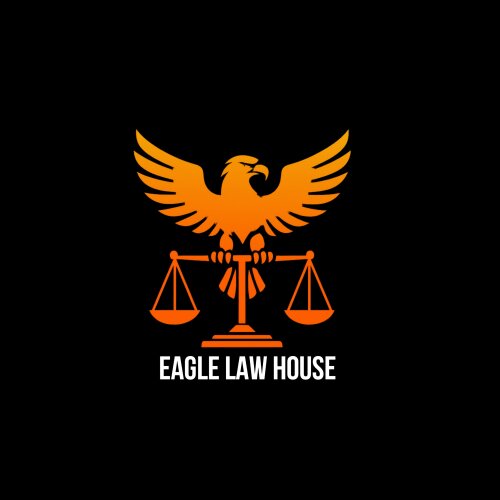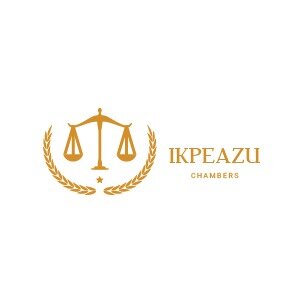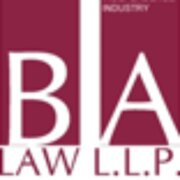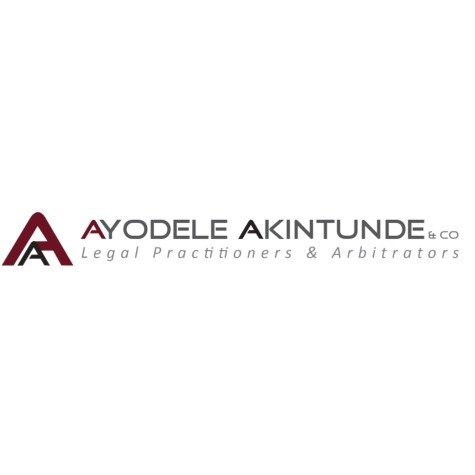Best Government Relations & Lobbying Lawyers in Nigeria
Share your needs with us, get contacted by law firms.
Free. Takes 2 min.
Or refine your search by selecting a city:
List of the best lawyers in Nigeria
Legal guides written by Adeola Oyinlade & Co:
- Procedure and Requirements for Work Permit and Visas in Nigeria
- The Step-By-Step Procedure of How to Apply for Microfinance Bank License Online in Nigeria
- How to Ensure the Smooth Recognition and Enforcement of Foreign Judgments in Nigeria
About Government Relations & Lobbying Law in Nigeria
Government Relations & Lobbying in Nigeria revolves around influencing decision-making processes within public-sector institutions and informing policymakers on issues that affect citizens, businesses, and organizations. The practice involves strategic communication, building relationships with government officials, and advocating for policy changes that align with the interests of the represented parties. Lobbying activities are often conducted by businesses, non-governmental organizations (NGOs), industry groups, and professional lobbyists who have a deep understanding of the political and legislative landscape in Nigeria.
Why You May Need a Lawyer
Engaging in Government Relations & Lobbying can be intricate due to its highly regulated nature in Nigeria. Legal assistance may be required in several scenarios, including:
- Complying with the complex regulatory environment governing lobbying activities.
- Drafting, reviewing, and interpreting contracts or agreements related to lobbying activities.
- Navigating disputes or issues arising from lobbying activities or government interactions.
- Understanding and dealing with potential conflicts of interest and ethical considerations.
- Seeking guidance on permissible forms of lobbying and relationship-building activities.
Local Laws Overview
In Nigeria, lobbying is regulated under several statutes and guidelines that dictate how individuals and organizations can legally influence governmental decisions. Key legislative frameworks include:
- Nigerian Constitution: While not explicitly mentioning lobbying, it sets the groundwork for public participation and the right to petition government bodies.
- Public Procurement Act: Governs the engagement of government resources and sets out rules to ensure transparency and fairness in interactions that could involve lobbying.
- Code of Conduct for Public Officers: Contains provisions aimed at preventing corruption and maintaining integrity in public office, relevant for lobbyists interacting with government officials.
- Monetary policies and regulations: Guidelines on financial transactions and reporting which might influence lobbying activities.
Frequently Asked Questions
What is lobbying, and is it legal in Nigeria?
Lobbying is the practice of influencing decisions made by government officials, typically concerning legislation and regulation. While not directly addressed, it is implicitly governed under various Nigerian laws that ensure transparency and ethical conduct in influencing public policy.
Who can engage in lobbying activities in Nigeria?
Businesses, NGOs, industry groups, professional lobbyists, and sometimes individual citizens can engage in lobbying in Nigeria. However, they must adhere to relevant laws and regulations that govern these activities.
What ethical considerations must I keep in mind when lobbying in Nigeria?
Ethical lobbying involves transparency, avoiding conflicts of interest, and adhering to legal obligations. Lobbyists should refrain from corruption and ensure that their activities comply with Nigerian laws.
Are there specific registration requirements for lobbyists in Nigeria?
Currently, Nigeria does not have a specific registration system for lobbyists. However, lobbyists are subject to existing regulations and must comply with laws concerning ethics and transparency.
How can lobbying benefit my organization in Nigeria?
Lobbying can help your organization effectively communicate its interests to the government, influence policy changes, promote specific legislative agendas, and build relationships with policymakers for future collaboration.
What are the potential risks of lobbying in Nigeria?
Potential risks include legal penalties for non-compliance with regulations, reputational damage from unethical practices, and financial costs associated with lobbying activities.
Can foreign entities engage in lobbying in Nigeria?
Foreign entities can engage in lobbying activities in Nigeria, but they must adhere to Nigerian laws and may need to collaborate with local representatives to navigate the legal landscape effectively.
How does lobbying differ from public relations in Nigeria?
While both involve strategic communication, lobbying specifically targets influencing policy and legislative processes. Public relations, however, focuses on managing an organization’s image and communication with the public.
What should I include in a lobbyist agreement?
A lobbyist agreement should detail the scope of services, compliance with legal and ethical standards, confidentiality clauses, and terms of compensation.
Where can I report unethical or illegal lobbying practices in Nigeria?
Unethical or illegal lobbying practices can be reported to relevant authorities such as the Nigerian Police Force, Independent Corrupt Practices Commission, or Economic and Financial Crimes Commission.
Additional Resources
For those seeking further insights and legal help in Government Relations & Lobbying in Nigeria, consider exploring the following resources:
- Nigerian Bar Association (NBA): A valuable resource for finding legal professionals specialized in lobbying and government relations.
- Economic and Financial Crimes Commission (EFCC): Provides guidelines and enforcement in terms of financial compliance, important for lobbying.
- Independent Corrupt Practices Commission (ICPC): Offers resources on maintaining integrity and addressing unethical practices.
- Regulatory and advocacy organizations: Networking and professional associations often provide guidance on best practices in advocacy and lobbying.
Next Steps
If you require legal assistance in the field of Government Relations & Lobbying in Nigeria, consider the following steps:
- Assess your specific needs pertaining to lobbying and government relations to identify the type of legal assistance you require.
- Consult with a legal expert from the Nigerian Bar Association who specializes in government relations and lobbying to ensure compliance with local laws.
- Prepare relevant documents and information to discuss with your legal advisor, ensuring all aspects of your lobbying activities are addressed.
- Stay informed about changes in regulations and legal requirements to adapt your strategies accordingly and ensure continuous compliance.
Lawzana helps you find the best lawyers and law firms in Nigeria through a curated and pre-screened list of qualified legal professionals. Our platform offers rankings and detailed profiles of attorneys and law firms, allowing you to compare based on practice areas, including Government Relations & Lobbying, experience, and client feedback.
Each profile includes a description of the firm's areas of practice, client reviews, team members and partners, year of establishment, spoken languages, office locations, contact information, social media presence, and any published articles or resources. Most firms on our platform speak English and are experienced in both local and international legal matters.
Get a quote from top-rated law firms in Nigeria — quickly, securely, and without unnecessary hassle.
Disclaimer:
The information provided on this page is for general informational purposes only and does not constitute legal advice. While we strive to ensure the accuracy and relevance of the content, legal information may change over time, and interpretations of the law can vary. You should always consult with a qualified legal professional for advice specific to your situation.
We disclaim all liability for actions taken or not taken based on the content of this page. If you believe any information is incorrect or outdated, please contact us, and we will review and update it where appropriate.
Browse government relations & lobbying law firms by city in Nigeria
Refine your search by selecting a city.

















